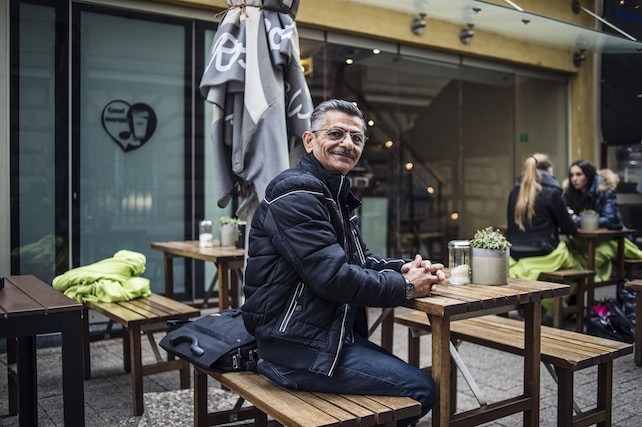In recent months, there has been a surge of negative commentary regarding the treatment of refugees and asylum seekers in Luxembourg. Pictures of poor living standards, protests and general dissatisfaction have been widely reported in the media, and condemnation has firmly fallen on the doors of the country’s foreigner integration agency, the Office Luxembourgeois de l’Accueil et de l’Intégration (Olai). But are the Luxembourg authorities really to blame?
“I think that people forget that whilst Olai has overall responsibility for more than 80 facilities, they are not the only stakeholder involved in the process,” said Halim Abdoulrazzak, an asylum seeker from Amouda, Syria, who was recently awarded the Luxembourg Peace Prize for his work with refugees in Luxembourg and abroad. “Other NGOs are also responsible for the day-to-day running of many of the foyers [shelters], so accountability cannot be placed solely on the Olai’s shoulders.”
Indeed, out of the more than six dozen facilities in the country, 25% are run and managed daily by NGOs, with Olai social workers, educators and security teams visiting regularly.
“Many of the emergency asylum centres are managed by an NGO but staffed almost entirely by volunteers,” explained “Dianea”, a Good Samaritan at a facility run by a major charity who asked that her real name not be used because she was not authorised to speak with the press. “Whilst we try our very best as volunteers, we are not ‘trained’ as such and are completely reliant on the amenities that we are provided with. For the most part, things run smoothly, but sometimes fundamental items are missing such as cutlery or food for babies.”
“Best efforts”
At the height of the refugee crisis in 2015, Olai was quick to set up several emergency centres to house people for the short term, considered to be up to six months, with plans to build more permanent structures in 2016 and 2017. However, according to a Woxx newspaper interview with Yves Piron, the agency’s director, there are now several legal appeals preventing container villages being established in certain communes. (Olai declined Delano’s repeated requests for an interview.)
“Communication is key to solving problems and managing expectations,” states Abdoulrazzak. “If you effectively explain the processes to asylum seekers, things will go more smoothly. If you are a refugee sitting in the foyer waiting for your papers and you do not know the process, you may get frustrated and annoyed. Refugees want to contribute something to society like anyone else; it is the nature of all people to have a purpose.”
Initiatives such as The Connections project supported by the Association de Soutien aux Travailleurs Immigrés aim to assist asylum seekers find training, internships and mentoring prior to receiving official refugee status. Additionally, the Œuvre Nationale de Secours Grande-Duchesse Charlotte, another major charity, established the “Mateneen” project in December 2015, which has invested over €12m in projects designed to provide asylum seekers with participative activities.
“It is natural that when people are busy and fulfilled they feel like they have a role to play in local society,” says Abdoulrazzak. “It is easy to find fault when you have nothing to keep you occupied.”
This article was first published in the December 2016 issue of Delano magazine. Be the first to read Delano articles on paper before they’re posted online, plus read exclusive features and interviews that only appear in the print edition, by subscribing online.
